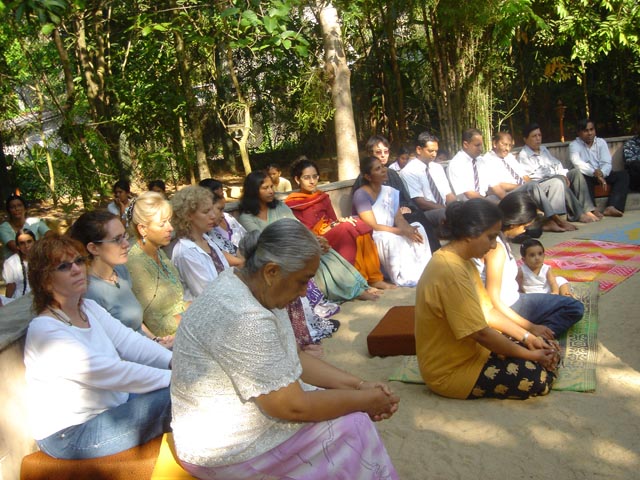A new study published in The Lancet explores the efficacy of mindfulness as part of cognitive behavioral therapy, and compares it to maintenance doses of antidepressants in preventing serious relapses. The study authors found it to be no more effective than medication, and recorded adverse effects and deaths in both groups.
Analysing the study for The Conversation, Miguel Farias and Catherine Wikholm note that we don’t know why meditation is effective for some people and not for others, and we have no idea how it works. The authors criticize the use of mediation as a medication or treatment, and the optimistic interpretations of inconclusive studies.
From the article:
Mindfulness is a technique extracted from Buddhism where one tries to notice present thoughts, feeling and sensations without judgement. The aim is to create a state of “bare awareness”. What was once a tool for spiritual exploration has been turned into a panacea for the modern age — a cure-all for common human problems, from stress, to anxiety, to depression. By taking this “natural pill” every day, we open ourselves up to the potential for myriad benefits and no ill-effects, unlike synthetic pills, such as anti-depressants, whose potential for negative side-effects we are all aware of.
The authors explore the actual scientific evidence available, before stating that Buddhist meditation wasn’t designed to make people happier, but to radically change their perception.
Other writers have had more cheeky takes on the recent increase in interest about mindfulness; writing in the Guardian, Stuart Heritage reviews a new book on mindlessness, and humorously attempts to live a less disciplined, less aware, life.
From the article:
Mindlessness operates on the basis that your mind and body already know how to take care of themselves. You don’t need to consciously concentrate on your breathing, or what you can smell, because you’ve been unwittingly been doing that since before you were born. To be truly mindless, you need to rely on a combination of snap judgments, uninformed intuition and absent-minded daydreaming. All the things I’m best at, in fact.
Heritage discovers that, as exhausting as mindfulness is, mindlessness may not be the best technique either; he makes an uninformed ‘snap judgement’ bet on a racehorse named ‘Shy John’, who fails to finish a race, and he stops going to the gym entirely.
Writing on Patheos, Ty Phillips, a buddhist, asks if Buddhism has a future in an increasingly less religious America, while critiquing the appropriation of mindfulness and other Buddhist teachings. In one scathing paragraph, he compares the commercialization of mindfulness to Lululemon leggings and MBA leadership techniques.
From the blog:
We also need to be clear in that the teachings of the Buddha were not designed to make the rich more comfortable. So while mindfulness is for everyone and beneficial for everyone, it was never intended to be a board room power move. It was never intended to be trendy and packaged with a brand new set of Lululemon leggings. It was and is, a path of letting go and seeing clearly what truly is, here and now.
Earlier this year, Barbara Ehrenreich, investigative journalist and author, noted the corporatized, consumerist versions of mindfulness, from smartphone apps to board room techniques, that have cropped up since the early aughts, in a long-form essay for The Baffler. Ehrenreich is quick to skewer the panacea of consumer mindfulness as smug, self-satisfied, self-comforting, product for the rich.
From the essay:
This is Buddhism sliced up and commodified, and, in case the connection to the tech industry is unclear, a Silicon Valley venture capitalist blurbed a seminal mindfulness manual by calling it “the instruction manual that should come with our iPhones and BlackBerries.” It’s enough to make you think that the actual Buddha devoted all his time under the Bodhi Tree to product testing. In the mindfulness lexicon, the word “enlightenment” doesn’t have a place.
Do you practice any ‘mindfulness’ techniques? Meditation? What are your goals? Do you worry about cultural appropriation in your practices?
Posted by David Streever

